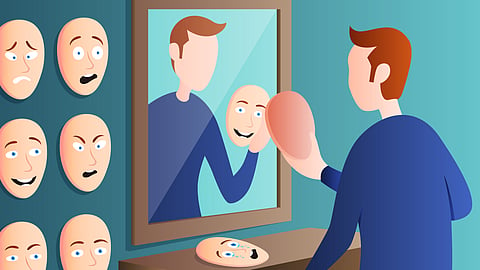

Every day, we wear invisible masks — not the ones for fancy dress or plays, but the ones that hide what we really feel. You might smile when you’re worried, or act calm before an exam. English has many idioms that capture this idea of disguise and emotion. From wearing a mask to dropping it, these expressions show how language reflects the small performances we put on in daily life.
Wear a mask
Meaning: To hide your true emotions or personality.
Example: She wore a mask of confidence, though she was nervous inside.
Drop the mask
Meaning: To reveal your real feelings or nature.
Example: When he spoke kindly to the junior, he dropped the mask of arrogance.
Behind the mask
Meaning: The reality hidden beneath an outward appearance.
Example: Behind the mask of success, he felt lonely and unsure.
Mask one’s feelings
Meaning: To hide emotions or pretend indifference.
Example: She masked her disappointment with a smile.
The mask slips
Meaning: When someone accidentally reveals their true self.
Example: The mask slipped when he laughed at the prank he claimed to dislike.
Wear many masks
Meaning: To behave differently in different situations.
Example: He wears many masks — a joker with friends, serious with teachers.
Unmask someone
Meaning: To expose a person’s hidden motives or truth.
Example: The investigation unmasked the real reason behind the project’s delay.
Masked intention
Meaning: A disguised motive or purpose.
Example: His generous donation carried a masked intention to gain attention.
Lift the mask
Meaning: To uncover the truth or reality.
Example: The interview lifted the mask from the company’s perfect image.
Without a mask
Meaning: To be open and sincere.
Example: She spoke without a mask — honest, humble, and clear.